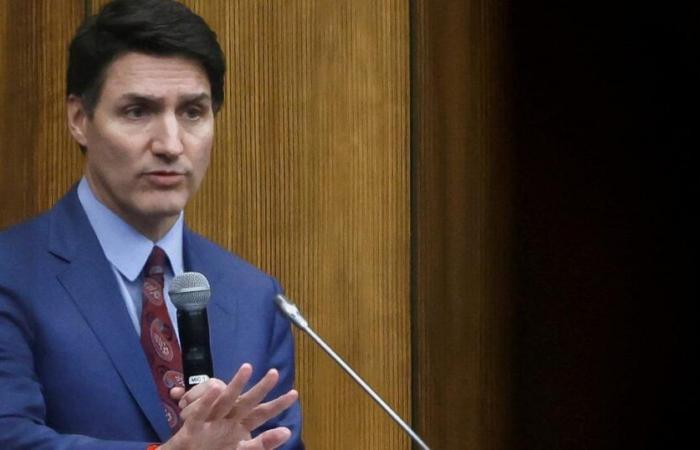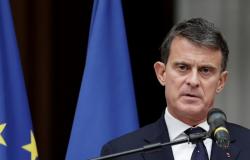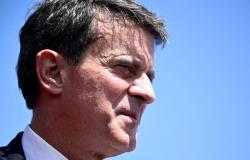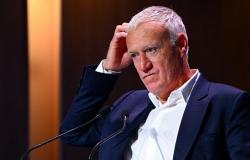Under pressure for several weeks due to numerous political setbacks and the risk of an economic crisis with the United States, the Canadian Prime Minister will speak at 4:45 p.m. this Monday during a speech.
After almost ten years at the head of Canada, the Justin Trudeau era is coming to an end. The Prime Minister could resign this week, according to daily information The Globe and Mail . The Canadian head of state has reportedly indicated that he wants to leave the presidency of his party, the Liberal Party, before a crucial meeting scheduled for Wednesday, January 8. Monday afternoon, the leader announced a speech at 4:45 p.m.
Such an announcement would come less than ten months before the next legislative elections – which will be held in October – and after Justin Trudeau had expressed his intention to run again. But the rise in his unpopularity within his party as well as among Canadians, and a potential economic crisis with Donald Trump’s United States have pushed him to rethink his place in his country’s politics. Le Figaro takes stock of the reasons for his potential resignation.
Serious political crisis within his party
It has been several months since a serious crisis shook the ruling Liberal Party, which has suffered a series of political setbacks. Since last summer, nine ministers have left the government or announced that they do not want to run in the next federal election. The prime minister notably lost the support of his main left-wing ally, Jagmeet Singh, ending an alliance concluded three years ago. When leaving the ship, the leader of the New Democratic Party (NDP) did not mince his words against his former colleagues: “Liberals are too weak, too selfish and too close to the ultra-rich to fight for people.”
Justin Trudeau’s government narrowly survived a series of votes of no confidence initiated by the conservative opposition which is gaining popularity in the polls. At the same time, the head of state’s detractors called for his resignation.
But the thunderbolt struck on December 16 with the surprise resignation of the deputy prime minister and government heavyweight, Chrystia Freeland, which further weakened Justin Trudeau. The Minister of Finance justified herself by arguing against Donald Trump’s threats to impose 25% customs duties on all Canadian products. “Today our country is facing a great challenge. The new US administration pursues an aggressive policy of economic nationalism[…] We must take this threat seriously.”she explained in a letter published by X. Because the return of the American billionaire at the head of the United States marks the start of an economic crisis for Canada.
Risk of economic crisis with the United States
Barely elected, Donald Trump threatened Ottawa with economic retaliation, the main one being this 25% increase in customs tariffs. The agreement between Canada, the United States and Mexico (CUSMA – formerly Nafta) will have to be renegotiated in 2026, or even this year. Chrystia Freeland was the Canadian negotiator in 2017, with success. Faced with threats of a tariff war, the former deputy prime minister warned of the need to preserve Canada’s budgetary capacity. Meanwhile, Justin Trudeau multiplied tax gifts to please voters. The prime minister, however, traveled to Florida in November to meet Donald Trump at his Mar-a-Lago property to avoid a trade war.
But since then, Donald Trump, who will take office as president on January 20, has dealt humiliating blows to Justin Trudeau on social networks, calling him several times “governor” of Canada. The future strongman of the United States keeps talking about Canada as the 51e State of the United States. “Many Canadians want Canada to become the 51e State. They would save a huge amount in taxes and military protection. I think it’s a great idea.”he tweeted, for example.
Declining popularity
Long acclaimed for the charm of his youth, the one who is nicknamed «Kid Kodak» for his eternal smile as a good student saw his popularity plummet. Justin Trudeau is perceived by the population as responsible for the high inflation which is hitting the country as well as the housing and public services crisis. The favorite place in the hearts of Canadians is now occupied by Pierre Poilièvre, the leader of the conservative party presented as the Canadian Donald Trump, who has 45% of voting intentions in the next legislative elections, compared to 25% for Justin Trudeau.
With his new status, the Prime Minister’s rival openly criticized him as incapable of dealing with the rising cost of living, the housing crisis and crime, while the national debt has doubled. It is this same political adversary who is at the origin of the motion which almost brought down Justin Trudeau’s government.
To try to halt his decline, the Prime Minister even returned last October to one of his flagship commitments: immigration. The one who promised to welcome 500,000 immigrants per year finally revised the quotas downwards, instead counting on 395,000 new arrivals in 2025, then 380,000 the following year and 365,000 in 2027. This backpedaling was explained by the publication of a poll revealing that 60% of Canadians felt there was too much immigration.
This slowdown in his migration policy was, however, not enough to gain popularity points, forcing him to consider only one solution: resignation. For the moment, post-Trudeau is still unclear, but the current prime minister could either remain interim leader of his party until a successor is found, or leave office immediately.






